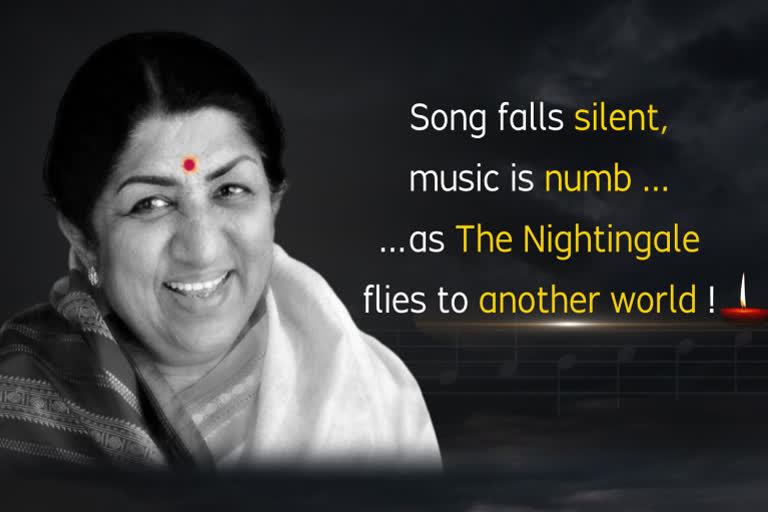Hyderabad (Telangana): 1934, an evening in Solapur, Maharashtra. A riyaaz (music practice) session was underway in a small room of classicist Pandit Deenanath Mangeshkar's home. The student was trying to catch the notes of Puriya Dhanashree raga in the Pandit's absence. This raga in particular was (and has always been) difficult to improvise as it has seven notes (i.e. Shadaj, Rishabh, Gandhar, Madhyam, Pancham, Dhaivat, and Nishad). Not everyone can handle the nuances of the notes as they ought to be. But then, a five-year-old girl Hema Mangeshkar who was overhearing the pupil's riyaaz jumped to correct the faulty rendition. Her father Pandit Deenanath who was silently witnessing all this was left flabbergasted, and delighted to discover that his daughter was indeed a "gifted child!"
The day after was never the same for Hema (Lata Mangeshkar) as her father initiated her into music. At the age of nine, the budding talent pleaded with Deenanath to allow her to share the stage with him in one of his shows which were to be held in Solapur. And when her father took over the stage post-Lata's gig, elated with her first stage performance, she fell asleep in his lap on the stage!
Initially, Deenanath was averse to Lata getting into playback singing as the world of make-believe was not considered apt for respectable families. But he reluctantly gave in to a friend's request to let his daughter playback for a song in the Marathi film Kiti Hasaal. In March 1942, Lata recorded her first song at Pune's Saraswati Cinetone when she was barely 13.
Was she nervous before heading for the recording? No. Stage fear or mic fright were not known to the teenager who had started enthralling classical music lovers from a very early age. However, Vasant Joglekar's Kiti Hasaal never saw the light of day and so did Lata's first recorded song.
A month later, Lata's delicate shoulders were ladened with a huge responsibility of being the breadwinner for her family of four siblings and mother following her father's demise.
Pressed under circumstances, Lata was looking for avenues to make ends meet. Much-needed opportunity knocked at the door when famous heroine Nanda's father, Master Vinayak, came to offer her a role in the Marathi film Pahili Mangalaa-gaur.
The first day of the shoot was not a very pleasant experience for then 13-year-old Lata who never liked make-up. She was devastated to the core when the film's director asked her to trim her eyebrows and forehead hair for the film. The otherwise hotheaded Lata found it hard to maintain her composure till the day ended. On her reaching home, she burst into tears in her mother's arms.
Apart from acting, Lata also crooned for a couple of songs in Pahili Mangalaa-gaur and for which she had received Rs 300 as remuneration. Her acting stint did not last long as Hema (birth name) was destined to become – the Lata Mangeshkar in times to come.
In the following five years, Lata worked at Master Vinayak's company Praful Pictures as an employee. When he too passed away, Lata was stranded yet again.
However, she got a second bite at the cherry when music director Ghulam Haider discovered her, and then one thing led to another as a rare talent had started taking baby steps only to later dominate the sphere of Indian cinema with her velvety voice.
The Nightingale of India's theory for life was simple. "Do your dharma and respect your karma.” She believed nothing comes without hard work following which success is inevitable.
But, being a Maharashtrian, raised by a Gujarati mother, Lata had to face criticism for evident Marathi diction in the songs written by Urdu lyricists. The first to point out this inadequacy in Lata was none other than Dilip Kumar who later became her Yusuf Bhaiya.
Determined to eradicate the scope for criticism, she then started taking Urdu lessons from a maulavi.
Mangeshkar was the only playback singer whom the classical music fraternity would not dare to look down upon. Playback singing pawed the way for Lata to reach the pinnacle of fame and success. The Melody Queen, nonetheless lived with a pinch of regret in her heart that she could not pursue a career in classical singing as she had a humongous financial responsibility to take care of.
